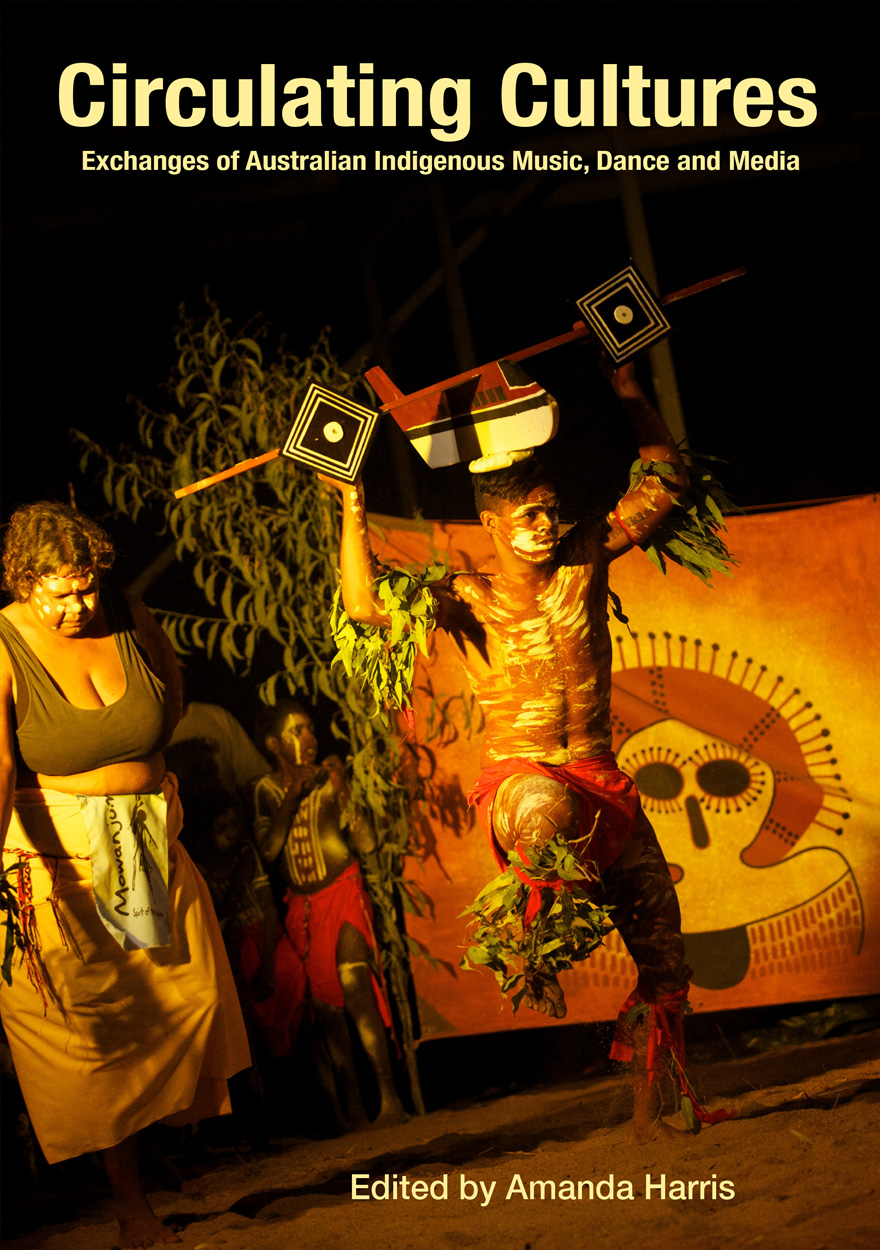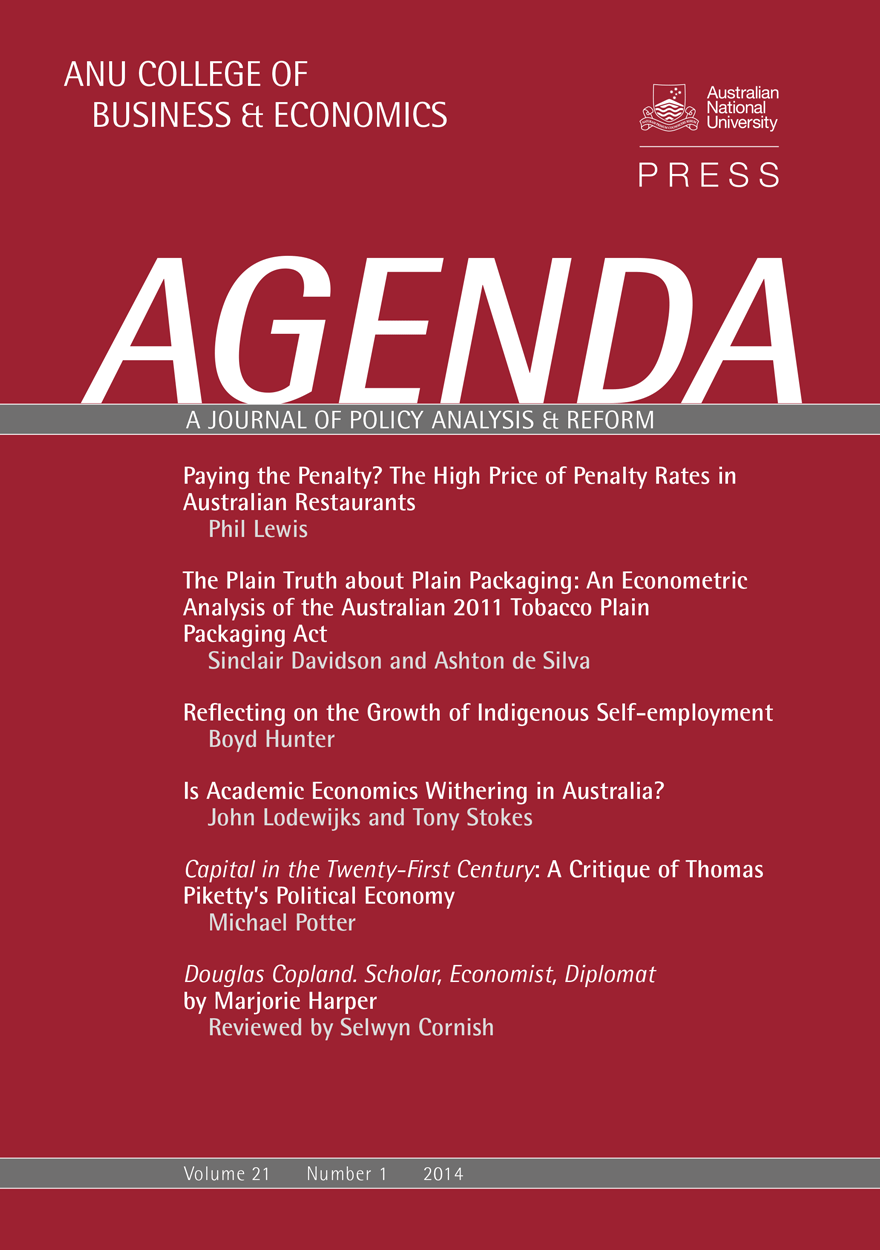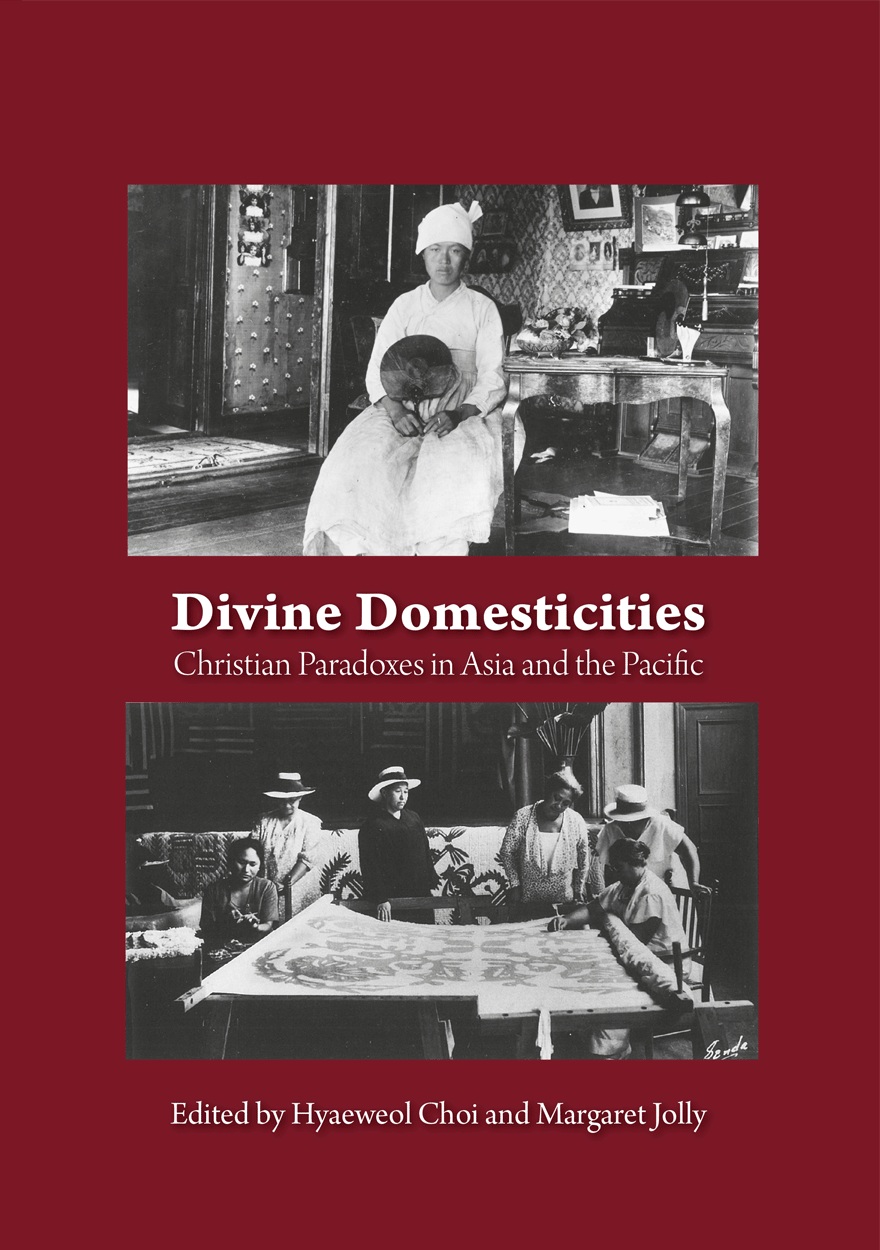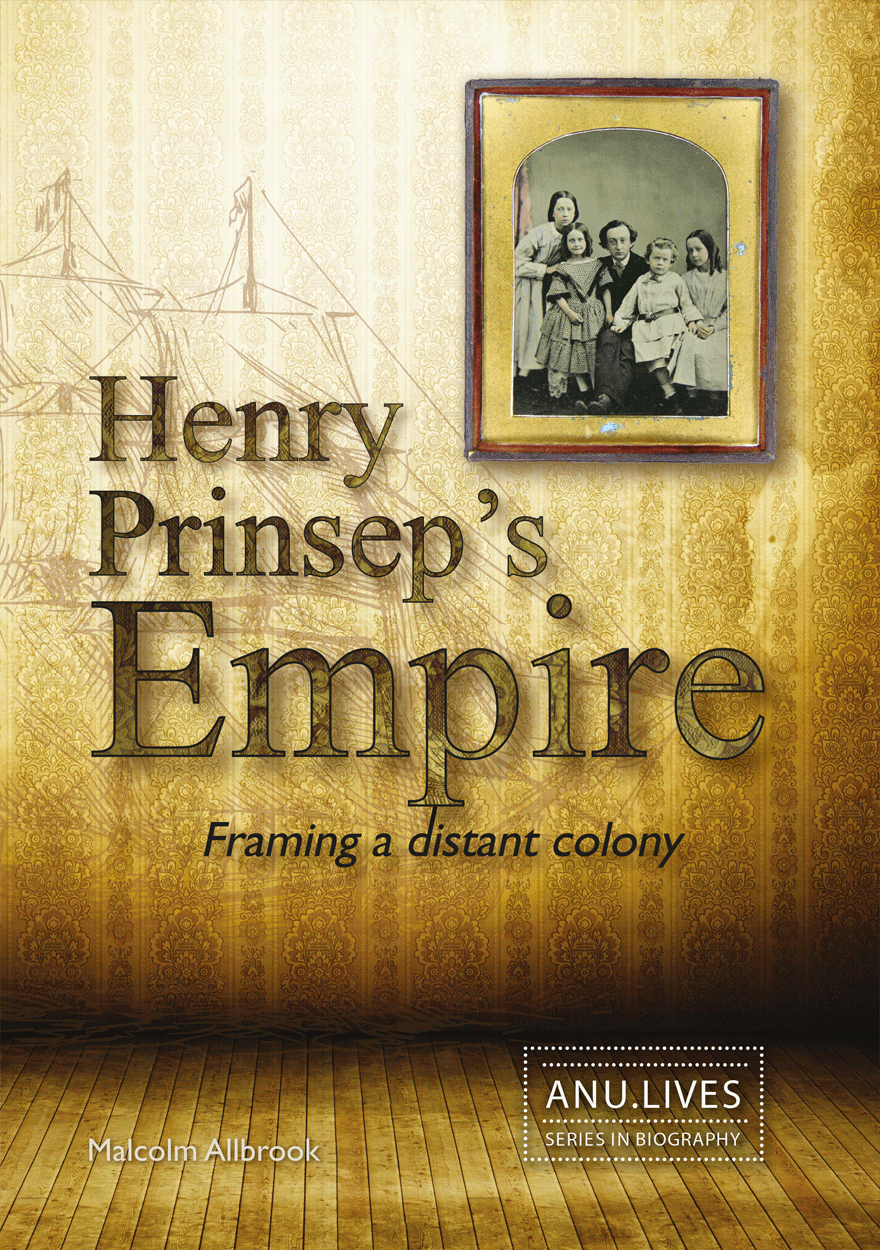Search titles
Displaying results 81 to 90 of 211.

Innamincka Words: Yandruwandha dictionary and stories »
Edited by: Gavan Breen
Publication date: April 2015
Innamincka Words: Yandruwandha dictionary and stories is one of a pair of companion volumes on Yandruwandha, a dialect of the language formerly spoken on the Cooper and Strzelecki Creeks and the country to the north of the Cooper, in the northeast corner of South Australia and a neighbouring strip of Queensland. The other volume is entitled Innamincka Talk: a grammar of the Innamincka dialect of Yandruwandha with notes on other dialects. Innamincka Words is for readers, especially descendants of the
original people of the area, who are interested in the language. It is also a necessary resource for users of the more technical Innamincka Talk.
These volumes document all that could be learnt from the last speakers of the language in the last years of their lives by a linguist who was involved with other languages at the same time. These were people who did not have a full knowledge of the culture of their forebears, but were highly competent, indeed brilliant, in the way they could teach what they knew to the linguist student.

Aboriginal History Journal: Volume 38 »
Edited by: Shino Konishi
Publication date: January 2015
Volume 38 features a special section on Western Australian Aboriginal history. Clint Bracknell translates and contextualises nineteenth-century Noongar songs. Amanda Nettelbeck considers the role of magistrates and justices of the peace in the ‘frontier legal networks’ of the Pilbara and Kimberley regions. Anne Scrimgeour traces the changing approach to the administration of Aboriginal people in the twentieth-century north-west through the biography of Laurie O’Neill, a former mounted policeman and travelling inspector. Craig Muller studies the history of the Wongatha of the north-east part of the Goldfields. Muller finds that Elkin’s account of his brief 1930 visit to the region was used as evidence in the recent Wongatha native title case without sufficient historical contextualisation. Together, the papers draw on rich archival sources, complicate our understandings of the way in which Aboriginal lives were controlled in the past, and highlight Aboriginal voices and perspectives.
The other four articles exploring Aboriginal histories from other parts of Australia. Nicholas Brodie reconstructs the life of Dalrymple Briggs, a Vandemonian woman of mixed-descent. Noah Riseman examines the lives of three Aboriginal servicemen who all had media profiles as successful examples of assimilation. The other two articles examine different non-Indigenous accounts of Aboriginal people and culture. Marguerita Stephens critically examines discourses on Aboriginal infanticide in colonial Victoria. The history of tourist visits to Palm Island, an Aboriginal reserve in Queensland is the focus of Toby Martin’s article.
Aboriginal History Inc. is a publishing organisation based in the Australian Centre for Indigenous History, Research School of Social Sciences, The Australian National University, Canberra.
For more information on Aboriginal History Inc. please visit aboriginalhistory.org.au.
Download for free
Not available for purchase

Circulating Cultures »
Exchanges of Australian Indigenous Music, Dance and Media
Edited by: Amanda Harris
Publication date: December 2014
Circulating Cultures is an edited book about the transformation of cultural materials through the Australian landscape. The book explores cultural circulation, exchange and transit, through events such as the geographical movement of song series across the Kimberley and Arnhem Land; the transformation of Australian Aboriginal dance in the hands of an American choreographer; and the indigenisation of symbolic meanings in heavy metal music. Circulating Cultures crosses disciplinary boundaries, with contributions from historians, musicologists, linguists and dance historians, to depict shifts of cultural materials through time, place and interventions from people. It looks at the way Indigenous and non-Indigenous performing arts have changed through intercultural influence and collaboration.

Diversity in Leadership »
Australian women, past and present
Edited by: Joy Damousi, Kim Rubenstein, Mary Tomsic
Publication date: November 2014
While leadership is an over-used term today, how it is defined for women and the contexts in which it emerges remains elusive. Moreover, women are exhorted to exercise leadership, but occupying leadership positions has its challenges. Issues of access, acceptable behaviour and the development of skills to be successful leaders are just some of them.
Diversity in Leadership: Australian women, past and present provides a new understanding of the historical and contemporary aspects of Indigenous and non-Indigenous women’s leadership in a range of local, national and international contexts. It brings interdisciplinary expertise to the topic from leading scholars in a range of fields and diverse backgrounds. The aims of the essays in the collection document the extent and diverse nature of women’s social and political leadership across various pursuits and endeavours within democratic political structures.

In the Eye of the Beholder »
What Six Nineteenth-century Women Tell Us About Indigenous Authority and Identity
Authored by: Barbara Dawson
Publication date: November 2014
This book offers a fresh perspective in the debate on settler perceptions of Indigenous Australians. It draws together a suite of little known colonial women (apart from Eliza Fraser) and investigates their writings for what they reveal about their attitudes to, views on and beliefs about Aboriginal people, as presented in their published works. The way that reader expectations and publishers’ requirements slanted their representations forms part of this analysis.
All six women write of their first-hand experiences on Australian frontiers of settlement. The division into ‘adventurers’ (Eliza Fraser, Eliza Davies and Emily Cowl) and longer-term ‘settlers’ (Katherine Kirkland, Mary McConnel and Rose Scott Cowen) allows interrogation into the differing representations between those with a transitory knowledge of Indigenous people and those who had a close and more permanent relationship with Indigenous women, even encompassing individual friendship. More pertinently, the book strives to reveal the aspects, largely overlooked in colonial narratives, of Indigenous agency, authority and individuality.
For more information on Aboriginal History Inc. please visit aboriginalhistory.org.au.

Agenda - A Journal of Policy Analysis and Reform: Volume 21, Number 1, 2014 »
Edited by: William Coleman
Publication date: November 2014
Agenda is a refereed, ECONLIT-indexed and RePEc-listed journal of the College of Business and Economics, The Australian National University. Launched in 1994, Agenda provides a forum for debate on public policy, mainly (but not exclusively) in Australia and New Zealand. It deals largely with economic issues but gives space to social and legal policy and also to the moral and philosophical foundations and implications of policy.
Subscribe to the Agenda Alerting service if you wish to be advised on forthcoming or new issues.
Download for free
Not available for purchase

Ngapartji Ngapartji »
In turn, in turn: Ego-histoire, Europe and Indigenous Australia
Publication date: November 2014
In this innovative collection, Indigenous and non-Indigenous scholars from Australia and Europe reflect on how their life histories have impacted on their research in Indigenous Australian Studies. Drawing on Pierre Nora’s concept of ego-histoire as an analytical tool to ask historians to apply their methods to themselves, contributors lay open their paths, personal commitments and passion involved in their research. Why are we researching in Indigenous Studies, what has driven our motivations? How have our biographical experiences influenced our research? And how has our research influenced us in our political and individual understanding as scholars and human beings? This collection tries to answer many of these complex questions, seeing them not as merely personal issues but highly relevant to the practice of Indigenous Studies.
I think this rich collection will become a landmark text and a favourite within Australian scholarship. I am keen to see it published so that I can recommend it to others
— Professor Emerita Margaret Allen, Gender Studies and Social Analysis, University of Adelaide
The idea was to explain the link between the history you have made and the history that has made you
— Pierre Nora

Divine Domesticities »
Christian Paradoxes in Asia and the Pacific
Edited by: Hyaeweol Choi, Margaret Jolly
Publication date: October 2014
Divine Domesticities: Christian Paradoxes in Asia and the Pacific fills a huge lacuna in the scholarly literature on missionaries in Asia/Pacific and is transnational history at its finest. Co-edited by two eminent scholars, this multidisciplinary volume, an outgrowth of several conferences/seminars, critically examines various encounters between western missionaries and indigenous women in the Pacific/Asia … Taken as a whole, this is a thought-provoking and an indispensable reference, not only for students of colonialism/imperialism but also for those of us who have an interest in transnational and gender history in general. The chapters are very clearly written, engaging, and remarkably accessible; the stories are compelling and the research is thorough. The illustrations are equally riveting and the bibliography is extremely useful.
—Theodore Jun Yoo, History Department, University of Hawai’i
The editors of this collection of papers have done an excellent job of creating a coherent set of case studies that address the diverse impacts of missionaries and Christianity on ‘domesticity’, and therefore on the women and children who were assumed to be the rightful inhabitants of that sphere … The introduction to the volume is beautifully written and sets up the rest of the volume in a comprehensive way. It explains the book’s aim to advance theoretical and methodological issues by exploring the role of missionary encounters in the development of modern domesticities; showing the agency of indigenous women in negotiating both change and continuity; and providing a wide range of case studies to show ‘breadth and complexity’ and the local and national specificities of engagements with both missionaries and modernity. My view is that all three aims are well and truly fulfilled.
—Helen Lee, Head, Sociology and Anthropology, La Trobe University, Melbourne

Indigenous Australians and the National Disability Insurance Scheme »
Authored by: Nicholas Biddle, Fadwa Al-Yaman, Michelle Gourley, Matthew Gray, J. Rob Bray, Brendan Brady, Le Anh Pham, Emma Williams, Maxine Montaigne
Publication date: October 2014
The National Disability Insurance Scheme (NDIS) is one of the major policy innovations of the early 21st century in Australia, representing a new way of delivering services to people with a disability and those who care for them. It has the potential to transform the lives of hundreds of thousands of people, giving them greater certainty and control over their lives. There is a higher incidence of disability in the Aboriginal and Torres Strait Islander population than in the Australian population more generally, so the NDIS is of particular relevance to Indigenous Australians. However, Indigenous Australians with a disability have a very distinct age, geographic and health profile, which differs from that of the equivalent non-Indigenous population. Furthermore, the conceptualisation of disability and care in many Indigenous communities, particularly in remote areas, may differ markedly in comparison to more settled parts of the country, and there is the added complexity of a unique history of interaction with government. In considering these issues in detail, this Research Monograph provides a resource for policy makers, researchers and service providers who are working in this important policy area. Its major conclusion is that the NDIS, if it is to be an effective policy for Indigenous Australians, needs to take into account their very particular needs and aspirations.

Henry Prinsep's Empire »
Framing a distant colony
Authored by: Malcolm Allbrook
Publication date: September 2014
Henry Prinsep is known as Western Australia’s first Chief Protector of Aborigines in the colonial government of Sir John Forrest, a period which saw the introduction of oppressive laws that dominated the lives of Aboriginal people for most of the 20th century.
But he was also an artist, horse-trader, member of a prominent East India Company family, and everyday citizen, whose identity was formed during his colonial upbringing in India and England. As a creator of Imperial culture, he supported the great men and women of history while he painted, wrote about and photographed the scenes around him. In terms of naked power he was a middle man, perhaps even a small man. His empire is an intensely personal place, a vast network of family and friends from every quarter of the British imperial world, engaged in the common tasks of making a home and a career, while framing new identities, new imaginings and new relationships with each other, Indigenous peoples and fellow colonists. This book traces Henry Prinsep’s life from India to Western Australia and shows how these texts and images illuminate not only Prinsep the man, but the affectionate bonds that endured despite the geographic bounds of empire, and the historical, social, geographic and economic origins of Aboriginal and colonial relationships which are important to this day.



